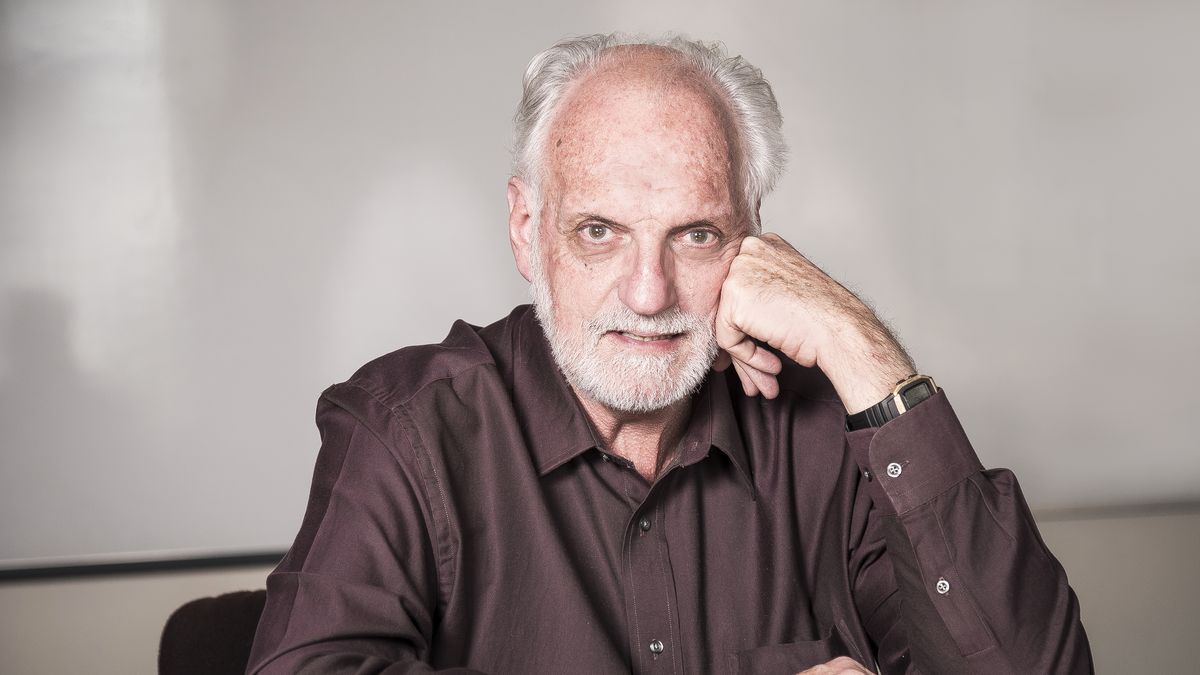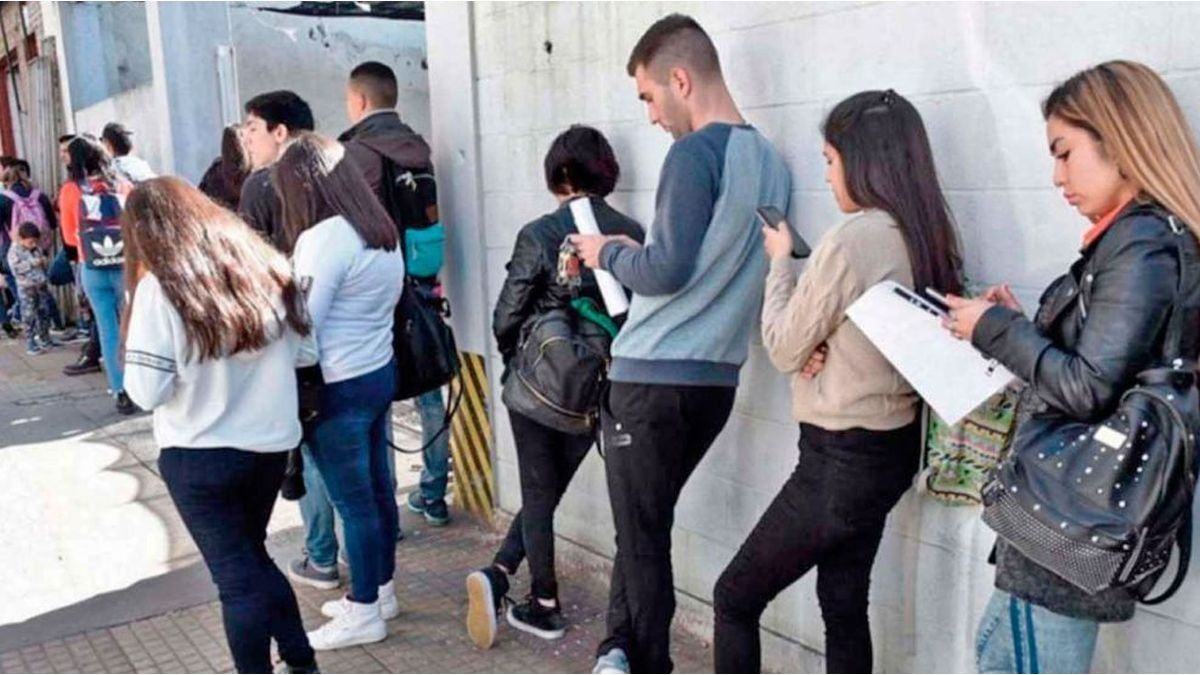This is how this economist with more than 50 years of experience puts it in his recent book Argentina 2024-2027, The economic challenge of the next government, which was launched at the beginning of March and in which he analyzes the need for growth, the reality of bimonetarism and addresses the debate that exists between shock or gradualism in order to give some clues that the next administration could take “so as not to fail again in the Argentine economy.”
The economist trained at the Universidad Católica Argentina (UCA) and at Harvard raises in this interview the main problems of the economy at the moment and points out the importance of taking into account that this is a year that “does not have anything normal” and explains because. In addition, he analyzes the role of the International Monetary Fund (IMF) in the current local context and supports the Government’s action of requesting dollars from the organization.
Juan Carlos DePaul: When you have a non-existent government, like the current one, taking any economic measure and making it successful is very difficult, which is why we continue to have the problems that appear recurrently in our country: inflation, stagnation and unemployment. There is no nothing normal in local reality this yearTherefore, we cannot apply a pattern of normality to Massa or Rubinstein when it comes to seeing their management because the ruling party has a very strong political weakness.
Q.: And the problem of bimonetarism, how should it be addressed?
JCDP: For me, the bimonetarism It is not a problem. We have lived this way in Argentina for many years. Since the 1970s, Argentines have been accumulating dollars. We use pesos only to transact and set prices and dollars as a store of value. However, if you go to a bar to have a coffee and want to pay for it in dollars, you probably won’t have any problem. They will accept them.
Q.: Why can Argentines accumulate dollars and the State cannot?
JCDP: We Argentines can accumulate dollars and the state not because governments spend everything they have instead of saving, regardless of the political sign to which they belong. Everything that citizens know and learn, which is to save all extraordinary income that they manage to capture for some eventuality and not spend it, the State does not. It is known that you always have to save money for bad times in good times. The most elementary policies say so. But, in the public sector, it does not happen, everything is spent.
IMG_8145.jpg
De Pablo has just released his new book, which proposes some reflections for the next economic team.
Sol Santarsiero
Q: Do you think that the choice of Massa for the position was correct?
JCDP: When a minister has to work in a political crisis like the current one, he does what he can. Counterfactual stories are useless, so it is not positive to know what would have happened if he had not assumed. But the truth is that heogre control the blue dollar, which was at $298 when Massa took over and, in these months, could have risen much higher than it did. The big issue is lowering inflation and progress cannot be made in this direction without correcting the distortions in prices that exist today in the economy. Until that is achieved, no anti-inflation measure can be successful.
Q.: And what role does the IMF play in current economic management?
JCDP: I think that he IMF They are not playing any role in this political and economic context because they have already given us all the funds and they know that we are not going to pay them. The same happens with bondholders. They know that their instruments are going to be exchanged for others. However, Yes, it would be essential that Sergio Massa and Miguel Pesce, the two officials who are naturally linked to the Fund, get fresh money from the organization. Nothing to apply creative accounting. Within the framework of the severe drought, which is generating a drop in exports, we must appeal to a specific relaxation of the agreement.
What cannot be mixed in this negotiation is the financial crisis in the United States because what we have is a local problem, the global is not relevant, and something that must be known is that when external variables are mixed in a negotiation, it is the best way to get nothing. And on the other hand, I think politics should do nothing, stay put because, otherwise, it could even put a roof on an economic team that nobody lends to, it has no reserves, it has no dollars and the only way out is to go to the Fund to ask for fresh money. In short, it is what the IMF was invented for.
Q.: What should a next government administration do? You address that in your new book, which came out in early March.
JCDP: For a next government there is a long way to go, an eternity in Argentina today, since we don’t know what next week will be like in today’s economy. Not even public officials know what the route from here to the elections will be like. My book does not propose any plan. What it does is address how the issue of credibility is complemented by a government program. It focuses on the need to build trust, which requires clear announcements and compliance with commitments. This is how reliability is built, even though there may be an initial doubt. A person is demonstrating that he is trustworthy with clarity and compliance with his announcements and the same happens with governments.
Q.: To get ahead as a country, it seems essential to achieve economic growth and control inflation. How could these objectives be achieved?
JCDP: Argentina is populated by millions of people who get up every morning to find their way around. What you have to do to grow is make life easier for entrepreneurs. I can testify, as a consultant, that they invest a lot of energy every day in obtaining supplies, fighting against the AFIP, and so on. You have to change that. The next Government has to propose to advance in this sense, if what they want is to govern and not dedicate themselves to floating. In Argentine politics there is the capacity to do so, but it is not automatic. It requires a process and the formation of a team.
On the other hand, one must understand that the field is a working sector. In addition, it is one of the sectors that is showing the most dynamism. Of course, nothing is salvation, but it is a sector that contributes, which is in the doldrums now due to the drought, but continues to invest in machinery because it knows that one day things will change, that the drought will end and that will makes you move forward. And, of course, it is key for the Argentine table. So, the “personal” issue of Kirchnerism with the countryside, which arose as a result of Law 125, must be overcome to solve the problem that arises when a country produces exportable goods that have a strong impact on the Argentine table.
Source: Ambito




